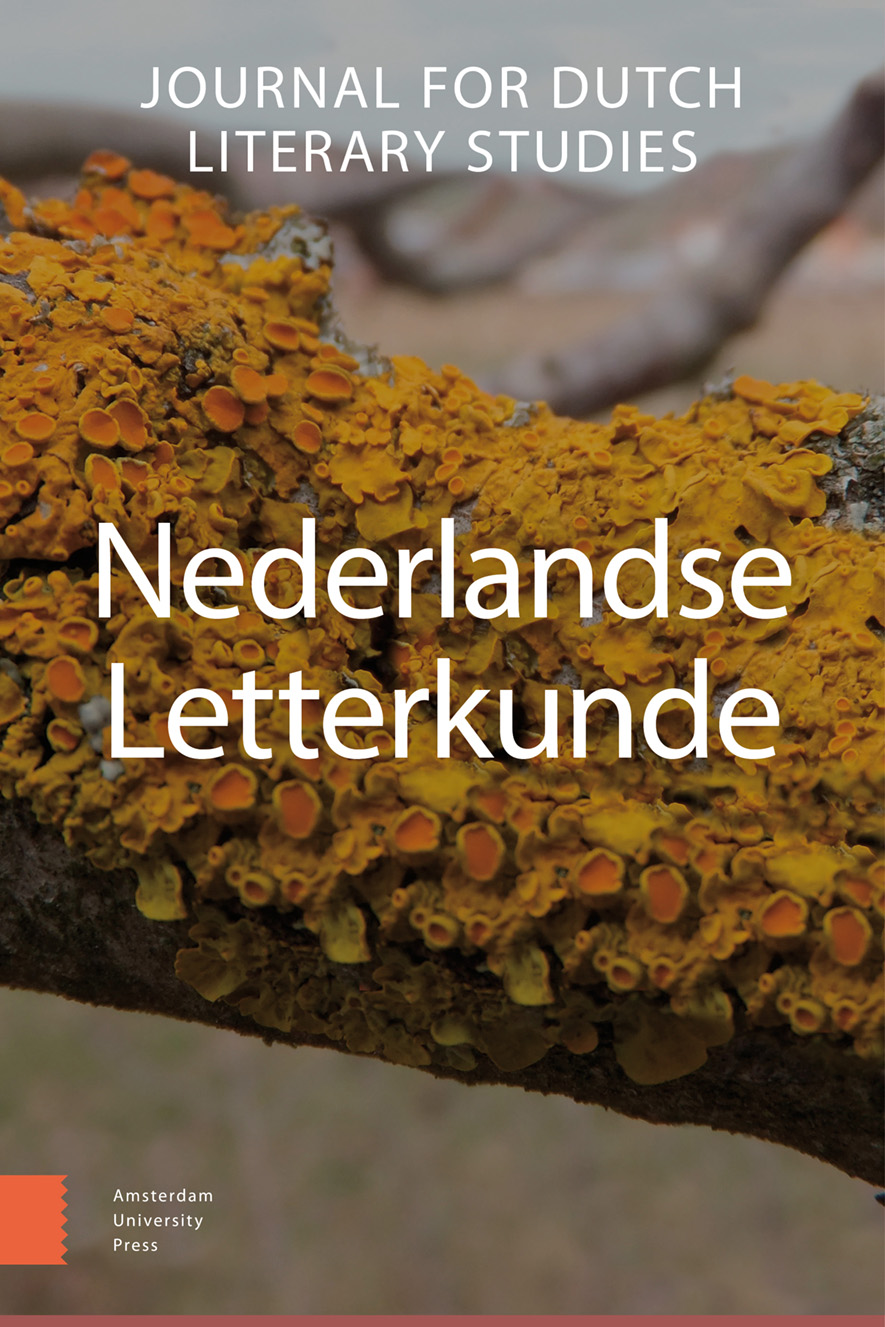-
oa De beginjaren 1923-1930 van De Letterkundige Kring, PEN-centrum voor Nederland
- Amsterdam University Press
- Source: Nederlandse Letterkunde, Volume 16, Issue 3, Dec 2011, p. 182 - 214
Abstract
In 1923 a few leading Dutch writers took the initiative of founding a dining club, a private society of kindred spirits and their guests who regularly dine together and discuss their shared interests. The model for this Letterkundige Kring (Literary Circle) was the PEN Club in London, established two years previously, which was an association of Poets, Playwrights, Essayists, Editors and Novelists that endeavoured to set up a branch in every country in the world. To this end, the leaders of the London establishment – the chairman John Galsworthy and the founder Catherine Amy Dawson Scott, helped by her daughter Marjorie Watts – had approached several well-known literary figures in the Netherlands. Anyone who became a member of one PEN centre was automatically welcome in all the others. As one of the national PEN centres – by 1930 there were already 46, with a total of about 3000 members – this new Literary Circle endorsed the internationalist and pacifist thinking of the international PEN club: by offering hospitality to writers from all countries and actively bringing them together, the peoples they represented would by degrees be reconciled and even ultimately bring world peace within reach. This signified that the PEN club had an idealistic and, involuntarily, also a political agenda, even though it considered itself to be emphatically a-political. This article describes how The Literary Circle fared in its early years as the PEN Centre and analyses the role it played in the literary and cultural life of the Netherlands in the 1920s. The archives covering the early years of this Dutch section have largely been lost, but it has turned out to be possible to get a picture of that period on the basis of scattered archive items and reports in the press of the time. Like its mother organisation, the Dutch PEN centre was a fairly informal enterprise that was able to steer an independent course. It was from the very beginning headed by the poet P.C. Boutens. He was also the chairman of the Vereeniging van Letterkundigen (Literary Association) (1905), which concentrated mainly on protecting the material interests of writers. There was nonetheless never any cooperation between the two organisations. They were also very different in nature. Whereas the Vereeniging van Letterkundigen relied on the largest possible membership, De Letterkundige Kring deliberately limited the number of members. All that can be established is that 94 authors, many of them living in Amsterdam or The Hague, were members for varying periods in the early years. It was quite a select company, usually of older male literary figures, which one could only join by invitation. It was however possible for outsiders to more or less follow the comings and goings of both the Dutch section and those abroad in the national daily and weekly press, with which several members of the Kring were associated. One of the most important activities of the Dutch centre was the members’ dinners, to which they invited guests, the most famous of whom were Thomas Mann (in 1924) and Georges Duhamel (in 1926), both of whom were touring several PEN centres. By the same token, three prominent and active PEN members from the Netherlands – P.C. Boutens, Herman Robbers and Jo van Ammers-Küller – were received as guests of honour at distinguished PEN gatherings abroad. From 1925, Dutch writers were also able to extend their international network at the annual PEN congress, even though at that time they were still not playing any conspicuous part, either in numbers or contributions. A large part of these congresses was in fact devoted to entertainment, though serious issues were also dealt with. A lot of attention was naturally paid to the writer’s pacifist and internationalist task, but also to the intellectual and material circumstances under which he was best able to fulfil this task, such as copyright, freedom of expression and the interests of the translator. In the first few years social intercourse was the main business of the Dutch branch too. Its exclusiveness made it a somewhat inward-looking company, where young talent remained in the minority. Partly as a result of this, the dynamism of the club could have been greater, and this was not good for its reputation. But paradoxically enough, its internationalism meant that it did at the same time look outwards, which is one of the major reasons why it must have been attractive to many Dutch writers. In this way De Letterkundige Kring made an essential contribution to the internationalisation of literary life in the Netherlands.


